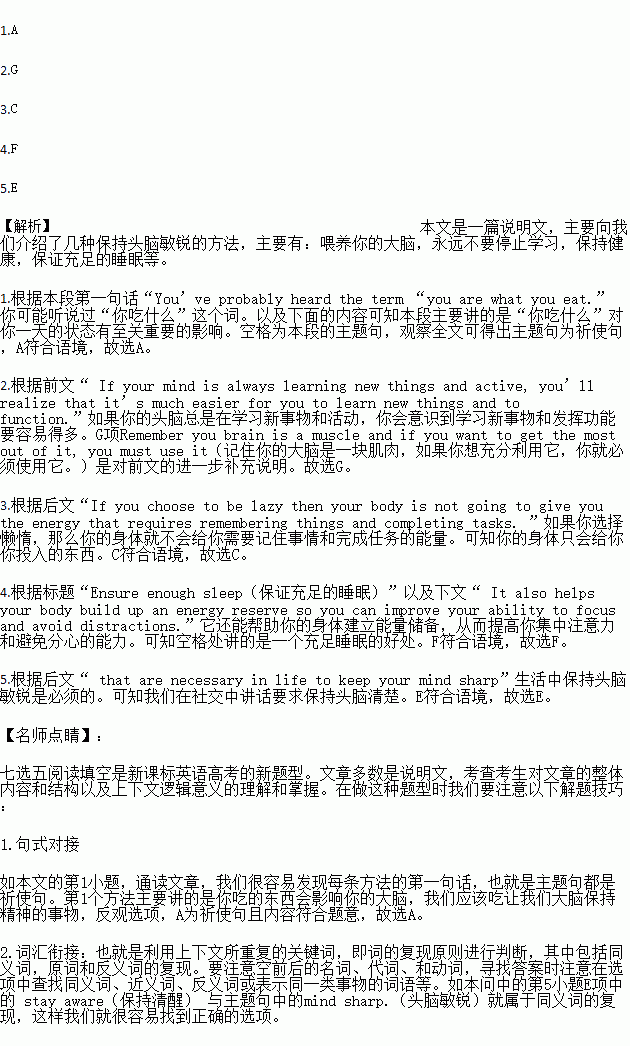题目内容
Tips for Staying Sharp
It’s not abnormal to feel out of it from time to time or perhaps you’re feeling a bit sluggish(迟钝的)when it comes to remembering things. If you’re worried about your forgetfulness, try out these five tips to stay sharp.
1.
You’ve probably heard the term “you are what you eat.” If you decide to eat sugary foods that are heavy with fats then expect to feel lazy and have no energy. But if you decide to eat fruits, vegetables and make other healthy eating decisions you’ll find that you’re full of energy.
Never stop learning
Challenge yourself constantly---whether it is puzzles, reading, cooking or other tasks that will keep your mind working. If your mind is always learning new things and active, you’ll realize that it’s much easier for you to learn new things and to function.2.
Stay fit
Being in good health and staying in shape is a big part of staying sharp.3.If you choose to be lazy then your body is not going to give you the energy that requires remembering things and completing tasks. However, if you put forth the effort into being health then your body will expel(释放)the energy you need to achieve your goals.
Ensure enough sleep
Be sure to get the necessary amount of sleep that your body needs to function on a daily basis.4.It also helps your body build up an energy reserve so you can improve your ability to focus and avoid distractions.
Socialize more
5. Social interaction will help you develop multitasking, problem solving and other skills that are necessary in life to keep your mind sharp.
A. Feed your brain
B. Avoid eating too much
C. Your body will only give you what you put into it
D. Lack of sleep contributes to tiredness and slow reaction
E. Conversations require individuals to stay aware and active
F. According to studies, sleep helps strengthen and recover your memories
G. Remember you brain is a muscle and if you want to get the most out of it, you must use it

